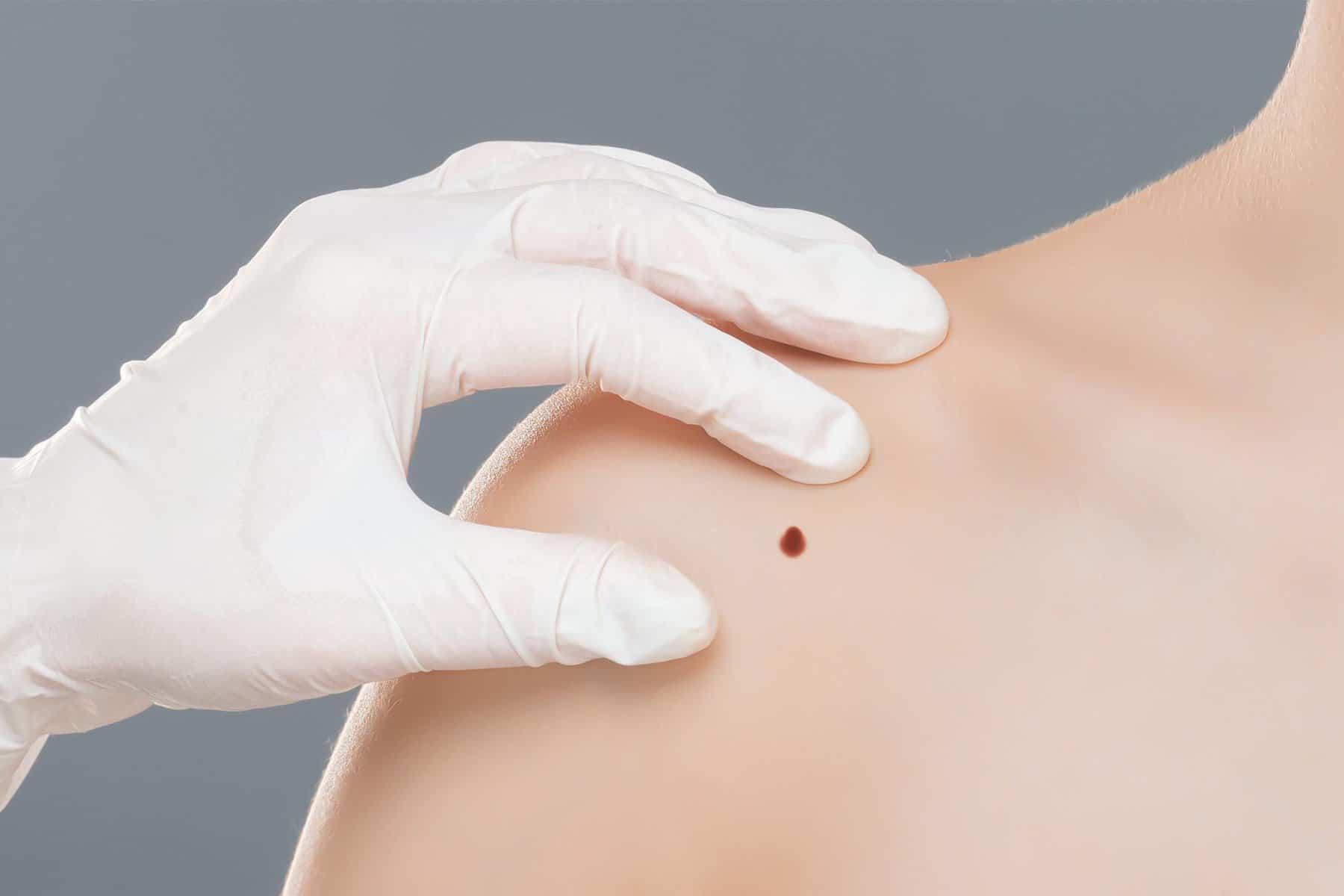Genetic Testing for Melanoma
Explore your inherited risk of melanoma with expert genetic testing. Clear results, personalised advice and ongoing support from our specialists in Reading.

What is Genetic Testing for Melanoma?
Genetic testing for melanoma involves analysing your DNA to detect inherited mutations that may increase your risk of developing skin cancer, particularly melanoma. These tests help identify familial patterns of risk and can guide personalised prevention or monitoring strategies.
Some cases of melanoma are linked to changes in specific genes that affect how skin cells grow and repair. Testing can uncover these changes even when no family history is apparent, offering clarity about your inherited cancer risk.
Why is Genetic Testing Important for Melanoma?
Understanding whether you carry a genetic predisposition to melanoma enables early intervention. If you carry a high-risk mutation, your care plan can be adjusted to include more frequent skin checks, lifestyle modifications or referrals for family testing.
In people already diagnosed with melanoma, testing may provide insights into tumour biology or suggest risks for other cancers, such as pancreatic cancer, that are sometimes associated with the same genetic mutations.


How our Genetic Testing for Melanoma Works
The process begins with a consultation, where your consultant will review your personal and family history. If testing is recommended, you’ll be offered a saliva or blood collection kit. Most patients choose the convenience of our at-home saliva test, which is returned via pre-paid post.
Once received by our laboratory, your sample is analysed for mutations in genes known to increase melanoma risk. Results are typically ready within 2 to 4 weeks. Your consultant will explain the findings clearly and offer personalised advice on next steps.
We also work closely with genetic counsellors and dermatology specialists to ensure your care is coordinated and comprehensive, especially if results reveal significant findings.
Who Should Consider Genetic Testing for Melanoma?
You may wish to consider testing if:
- You have been diagnosed with melanoma, especially before age 40
- A first-degree relative has had melanoma
- Your family has a history of multiple melanomas or unusual moles
- There is a known mutation in a melanoma-linked gene in your family
- You have a personal or family history of melanoma and pancreatic cancer
Even if you’re unsure about your family history, our team can help determine if testing would be useful.
Which Gene Mutations Does The Test Look For?
The test focuses on mutations in genes most commonly linked to hereditary melanoma, including CDKN2A, CDK4, BAP1 and MITF. These genes influence how skin cells grow, divide and repair DNA. In some cases, mutations in genes associated with other cancers may also be reviewed based on your personal or family history.
Understanding which mutation is involved helps tailor your monitoring, prevention and treatment plans. It also allows your relatives to consider testing if a mutation is identified.
What Do Positive and Negative Results Mean?
A positive result means that a known mutation linked to melanoma risk was found in your DNA. This doesn’t mean you will definitely develop cancer, but it does indicate a higher lifetime risk. Your consultant will guide you through appropriate next steps, including increased skin surveillance or family testing.
A negative result means no concerning mutations were found in the genes tested. While this can be reassuring, it doesn’t completely rule out melanoma risk, especially if there is a strong family history. Your consultant will still recommend an appropriate screening and prevention plan.

Genetic Testing for Melanoma FAQs
- Is genetic testing painful?
No. Testing involves a simple blood or saliva sample and is completely non-invasive.
- Can I do the test from home?
Yes, our service is fully home-based. We will send you a simple saliva collection kit, which you return to the laboratory in a prepaid envelope.
- How long does it take to get the results?
Results are typically available within 4–6 weeks. A detailed report will be sent to you directly.
- What can genetic testing tell me about my health?
It can identify genetic markers linked to certain inherited conditions, offering insights into your risk and helping guide treatment or preventive care.
- Who should consider genetic testing?
Anyone with a family history of genetic disorders or certain cancers, or those looking for personalised insights into long-term health, fertility, or wellness.
- If my test is positive, does it mean I will get cancer?
No. A positive result means you have a higher risk, but it does not guarantee that you will develop cancer. It provides valuable information to guide screening, prevention and treatment decisions.
- What if my results show a genetic mutation?
You’ll receive expert support and a personalised care plan. This may include enhanced screening, preventive strategies or referrals for family members to consider testing.

Why Choose The Forbury Clinic?
The Forbury Clinic provides private genetic testing with accuracy, efficiency and patient comfort in mind. Our expert clinicians use the latest diagnostic technology to ensure reliable results, helping you to understand your body and take control of your health. We prioritise a smooth experience with minimal waiting times, allowing for fast testing and efficient result processing.